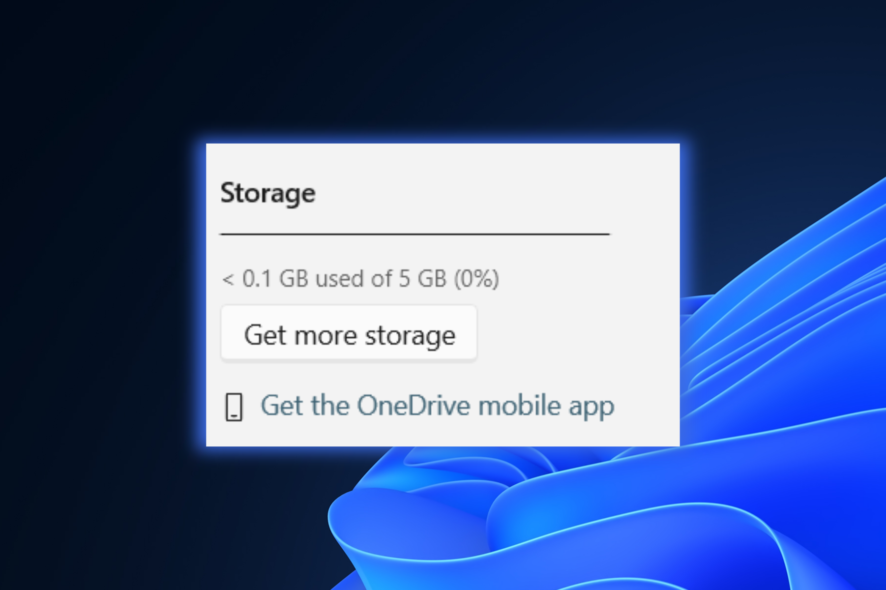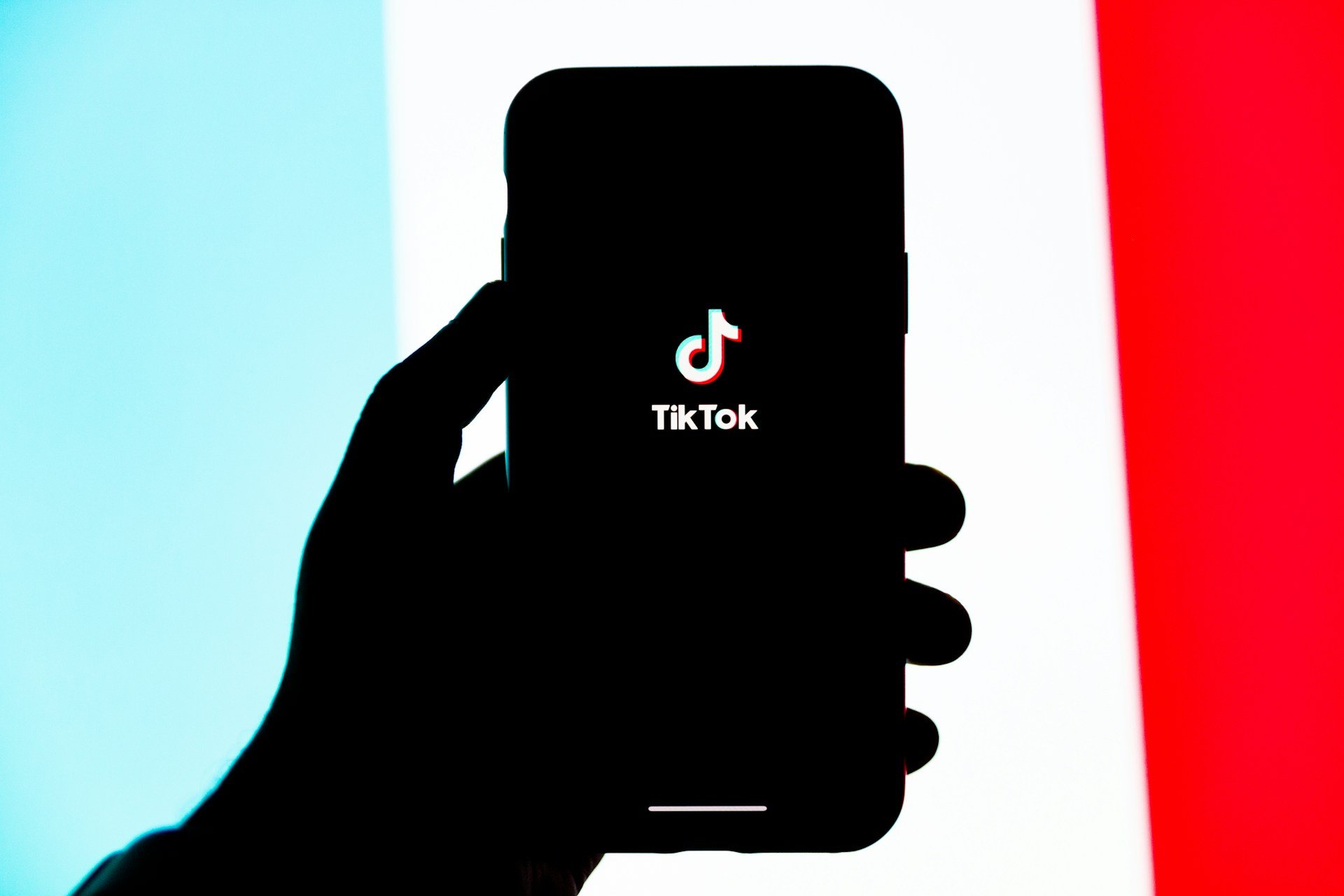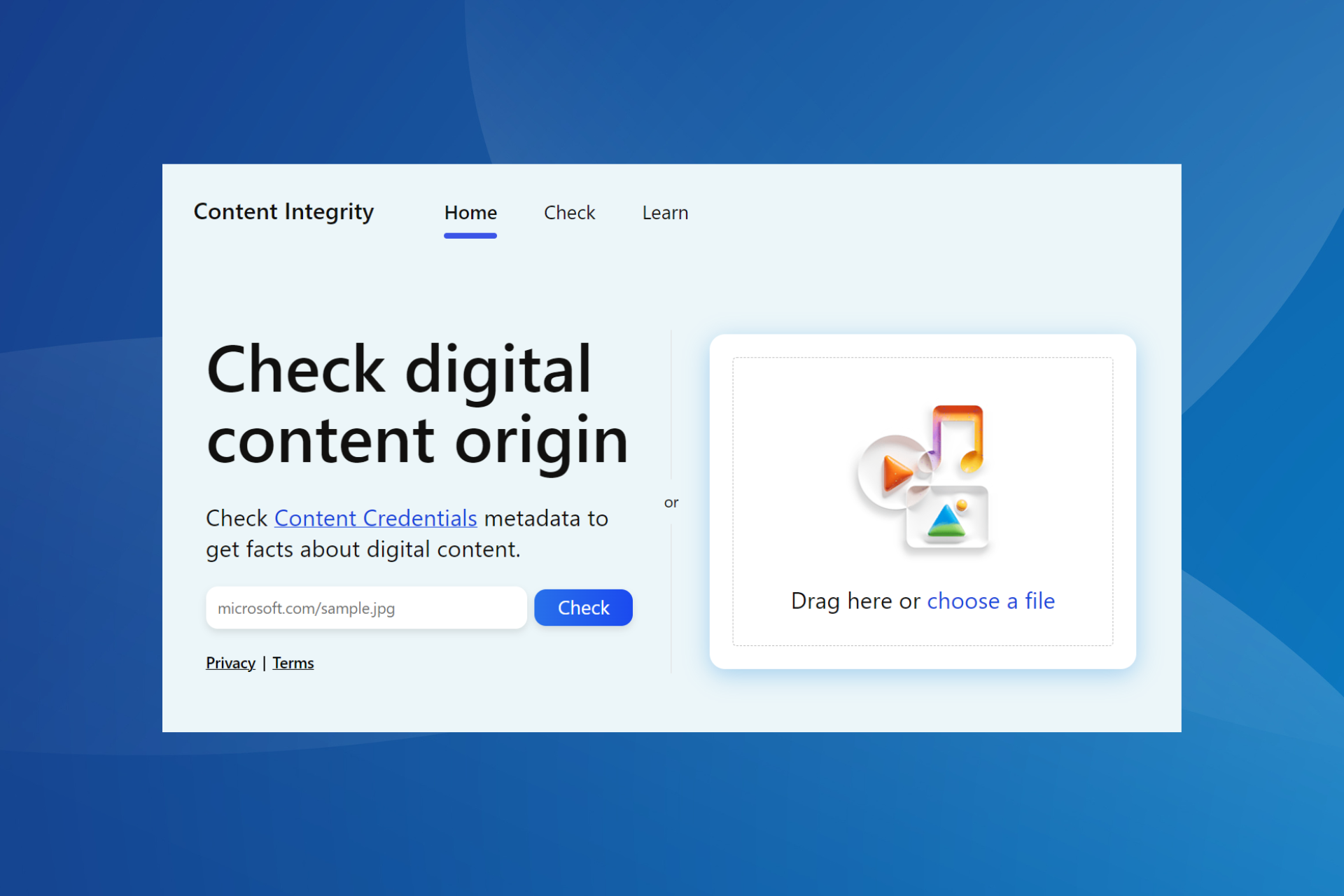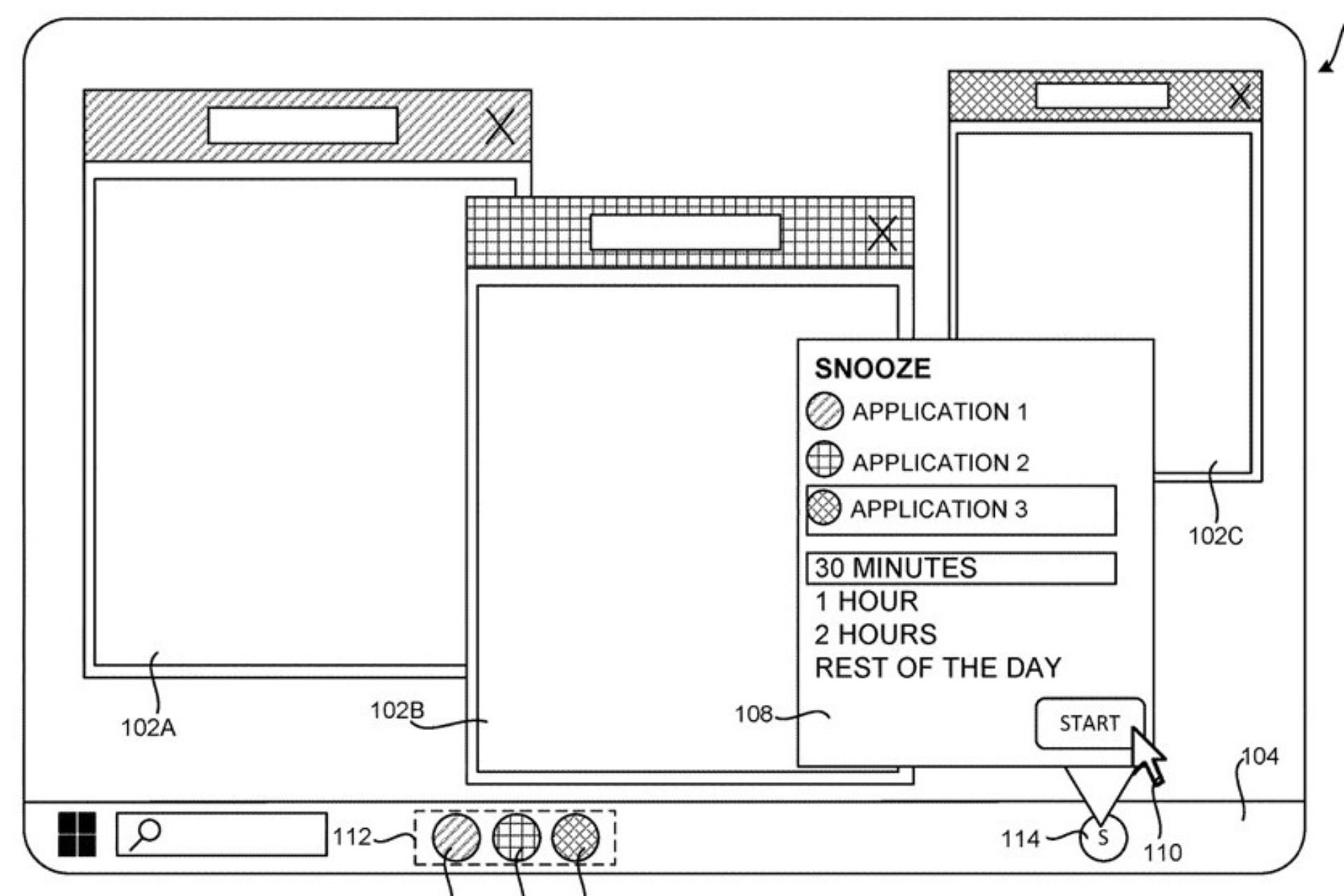Want to unlock OneDrive capacity view? Get KB5026440
Now live on the Beta channel.
5 min. read
Published on
Read our disclosure page to find out how can you help Windows Report sustain the editorial team Read more
Key notes
- Microsoft launched the KB5026440 update for Beta insiders.
- The update brings a few small features here and there, including OneDrive.
- Microsoft also tackles issues of memory leaks, audio, NTFS, and more.

Plenty of exciting updates are coming to Windows 11: the Dev Drive feature, Copilot for Windows, the native RAR support, and more. For Beta channel insiders, Microsoft rolled out the KB5026440, which features a slight tweak in the OneDrive storage.
With this update, users like you can make the most out of their storage capacity from all their OneDrive subscriptions. Additionally, the update includes a display of the total storage on the Accounts page within the Settings app, providing users with a comprehensive overview of their available cloud storage space.
You can easily keep track of their combined storage capacity, making it simpler to manage your files and ensure your have ample space for all their data, so that’s a piece of good news.
Besides, there seems to be a neat little tweak in a few areas, including the memory leak issue when printing a rich text document, the audio playback problem, and Server Message Block shared folder. Here’s everything we’ve noted from Redmond’s official release note.
What other features does the KB5026440 update bring?
- This update addresses an issue that affects dot sourcing. It fails files that contain class definition in Windows PowerShell.
- This update addresses an issue that affects exe. It stops working after you sign out. This issue occurs after you upgrade your machine to Windows 11 Azure Virtual Desktop (AVD) and sign in to that machine.
- This update addresses an issue that affects Server Message Block (SMB). You cannot access the SMB shared folder. The errors are, “Not enough memory resources” or “Insufficient system resources.”
- This update addresses a memory leak. It occurs every time you print a rich text document.
- This update addresses an issue that affects audio playback. It fails on devices that have certain processors.
- This update addresses an issue that affects the Local Security Authority Subsystem Service (LSASS). It stops working. This occurs when you use Azure Virtual Desktop (AVD).
- This update addresses an issue that affects the touch keyboard. Sometimes, it does not show the correct layout based on the current input scope.
- This update addresses a multi-function label printer issue. It affects the installation of some of them.
- This update addresses an issue that might affect a large reparse point. You might get a stop error when you use NTFS to access it. This issue occurs after a canceled FSCTL Set operation changes the reparse tag.
- This update addresses an issue that affects Narrator. It now announces text attributes correctly for words, such as “misspelled,” “deletion change,” and “comment.”
- This update addresses an issue that affects a computer when it renders a halftone bitmap. The computer stops working.
- This update addresses an issue that affects devices that have multiple, discreet GPUs. You cannot choose the high-performance GPUs from the default graphics settings page.
- This update changes the international mobile subscriber identity (IMSI) ranges for certain mobile providers.
- This update addresses an Event Viewer issue. It affects the rendering of a forwarded event log.
- This update addresses an issue that affects the Chinese and Japanese Input Method Editor (IME). When you search within the Emoji Panel (Windows key + period (.)), search might fail for some of you.
- This update addresses an issue that affects the Chinese and Japanese Handwriting Panel. It does not show text prediction candidates or stops responding. This occurs when you select a word from the candidate list of the Handwriting Panel.
- This update addresses an issue that stops your device from working when it resumes from Modern Standby. The error is 0x13A KERNEL_MODE_HEAP_CORRUPTION.
- This update addresses an issue that affects the Windows Firewall. The firewall drops all connections to the IP address of a captive portal. This occurs when you choose the Captive Portal Addresses option.
- This update addresses an issue that affects devices that are joined to Azure Active Directory (Azure AD). The Windows Firewall cannot apply the correct domain and profile for them.
- This update addresses an issue that affects the runas It stops working. The device behaves as if you did not sign in to your account.
- This update changes the support phone number for Microsoft India for Windows activation.
- This update addresses an issue that affects applications that perform certain actions in a callback. The applications might stop working. These actions include closing a Window (WM_CLOSE).
- This update addresses an issue that affects the use of the Event Viewer. The issue limits the number of event sources that users who are not administrators can access.
- This update addresses an issue that affects the Storage Spaces Direct (S2D) cluster. It might not come online. This occurs after a periodic password rollover. The error code is 1326.
- This update addresses an issue that affects access to Tab settings for IE mode sites.
- The update addresses an issue that sends unexpected password expiration notices to users. This occurs when you set up an account to use “Smart Card is Required for Interactive Logon” and set “Enable rolling of expiring NTLM secrets.”
- This update addresses an issue that affects the touch keyboard. It shows the wrong layout for the French-Canadian language.
Have you joined the Beta channel and installed KB5026440 update? Let us know in the comments!








